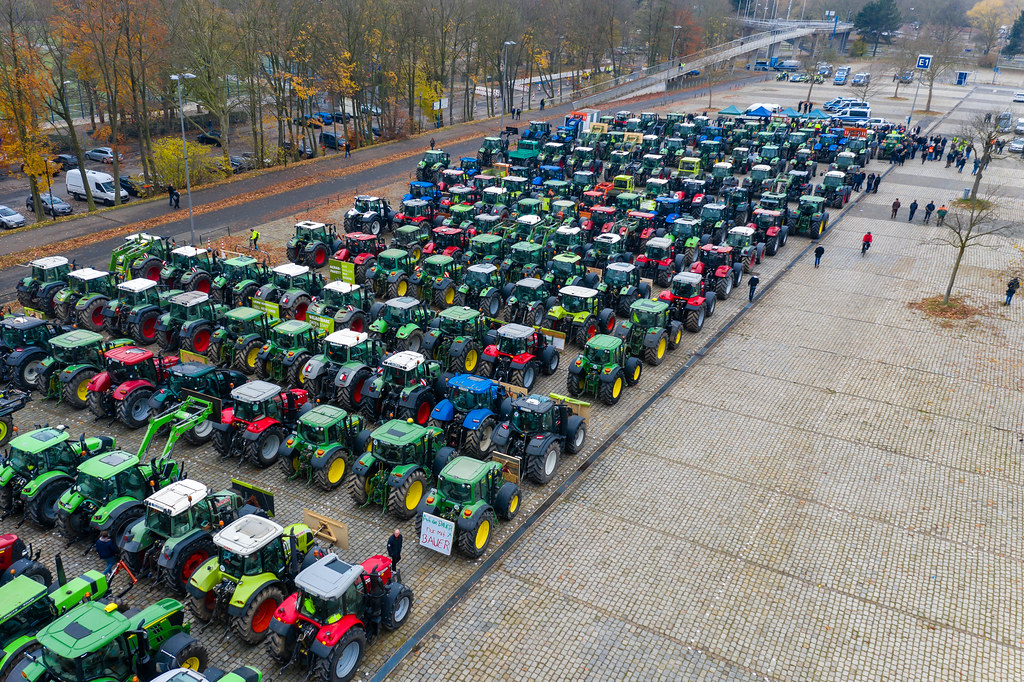On Monday, December 18, 2023, thousands of farmers from across Germany drove their tractors to Berlin and blocked the city’s main roads and landmarks, including the Brandenburg Gate. They were protesting against the government’s plans to slash diesel subsidies and vehicle tax breaks for the agricultural sector, which they said would cost them up to €1 billion ($1.1 billion) per year.
The farmers, who carried banners saying “Too much is too much!” and “We won’t accept this!”, accused the coalition government of Chancellor Olaf Scholz of declaring “war” on their industry and ignoring their vital role in providing food for the nation. They also claimed that the mainstream media was biased against them and did not report the truth about their situation.
The government, which faced a €17 billion ($18.4 billion) budget gap for 2024 after a constitutional court ruling in November, said that the cuts were necessary to balance the books and reduce climate-damaging emissions. It argued that the farmers had no alternative to diesel and that they should pay their fair share of taxes like other citizens.
However, after hours of tense negotiations, the government announced on Thursday, December 21, that it would partially backtrack on its proposals and offer some concessions to the farmers. It said that it would drop the plan to scrap the vehicle tax exemption for farming vehicles and that it would phase out the diesel subsidies gradually over four years instead of two.
The farmers welcomed the government’s compromise, but said that it was not enough and that they would continue to fight for their rights and interests. They said that they still faced unfair competition from other EU countries where diesel was cheaper and that they needed more support to transition to greener and more sustainable practices.
The tractor protest, which was one of the largest and most disruptive demonstrations in Germany’s recent history, showed the power and influence of the farming lobby in the country. It also exposed the challenges and dilemmas that the government faced in trying to balance its fiscal and environmental goals while maintaining social cohesion and public trust.
